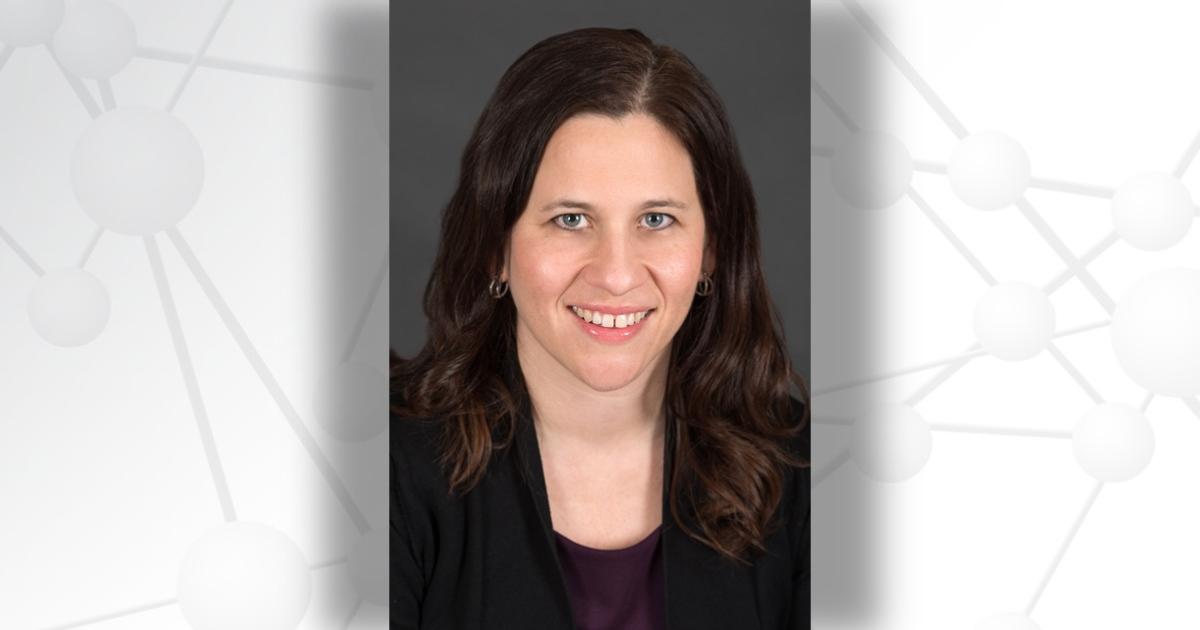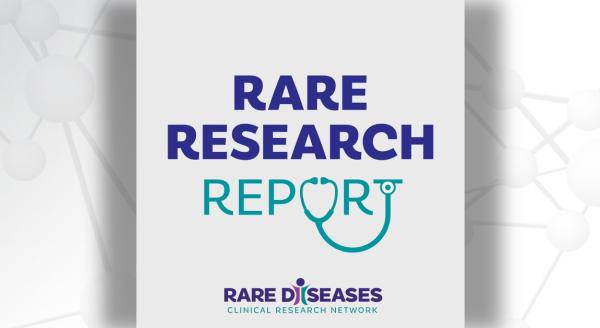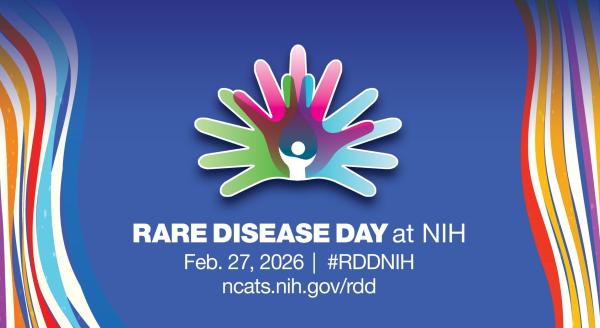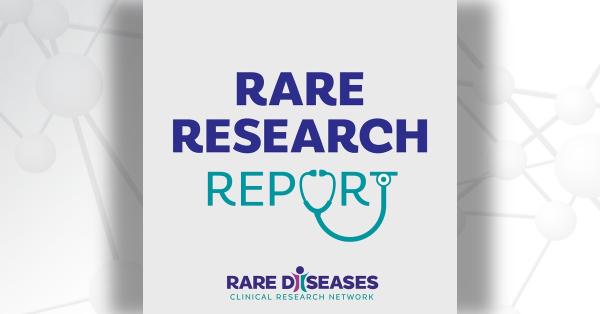Stephanie Sacharow, MD, is a medical geneticist in the Division of Genetics and Genomics at Boston Children’s Hospital and an assistant professor at Harvard Medical School. She is also a member of the Phenylalanine Families and Researchers Exploring Evidence (PHEFREE) Consortium. Her research focuses on phenylketonuria (PKU), a genetic metabolic disorder that increases the body's levels of phenylalanine. Here, she shares her start in rare disease research, exciting discoveries, and future goals.
How and why did you get involved with rare disease research?
I am a medical geneticist—specifically, a pediatrician specializing in rare disorders. I spend most of my time seeing patients, who often come with the question if they or their family member has a genetic diagnosis. In some cases, there may be a specific treatment based on the diagnosis.
I have had the privilege to become involved with people who have inborn errors of metabolism and the PKU population in particular. PKU was the first condition known where intellectual disability could be prevented by early treatment. This led to the development of the first newborn screening test around 60 years ago. I currently follow over 100 people with PKU, as well as direct the Dr. Harvey Levy Program for Phenylketonuria and Related Conditions at Boston Children’s Hospital, which is named after my mentor and pioneer in the field.
Participation in research is often part of a career in academic medicine. I began research for PKU working under Dr. Levy on a clinical trial for a new medication for PKU called pegvaliase. I am now principal investigator on several trials for PKU, some of which are sponsored trials by pharmaceutical companies, and others which are investigator-initiated, meaning I wrote a proposal about an original idea and was able to secure funding to carry out my plan.
When did you join PHEFREE as an early stage investigator?
Boston Children’s Hospital is one of the principal sites for PHEFREE consortium studies, led by my colleague Dr. Gerard Berry. In late 2020, I put together a proposal for a pilot project through the PHEFREE consortium, which was ultimately accepted for a start date of April 2021. The impetus for this project stems from experiences I had around that time with adult patients of mine with PKU.
When newborn screening for PKU began, our field was learning about how to manage people with PKU and for how long, since the critical period was clearly infancy and early childhood when more brain growth and development was occurring. As a result, some of the early patients with PKU identified by newborn screening were treated for variable amounts of time. I had one patient in particular who struck me because they had been treated until age 5 and then discharged from clinic. They had struggles with symptoms of PKU and had a nervous breakdown as an adult. At one point, they read about PKU and that the guidelines were now “Diet for Life.” They wished someone had reached out to let them know that things had changed.
With the opportunity provided by the PHEFREE consortium’s pilot program, I was able to formulate a plan to try and find patients that were lost to follow-up for various reasons, offering them a meeting with me and our research metabolic dietitian, Suzanne Hollander. During our meetings with lost to follow-up (LTFU) patients, we would discuss what is new and different with guidelines and treatments so they can make informed health care decisions moving forward and re-engage with clinic if they are interested.
What were your experiences working with PHEFREE and how has the experience shaped your research career?
I have had a very positive experience working with PHEFREE. I have the opportunity to participate as a co-investigator in the larger projects at my site. I also join the group meetings and conferences to keep abreast of the PHEFREE studies, other pilot and early career grants, and progress in the field at large. I was able to present my research plan to the group, and recently I was able to share interim data.
PHEFREE has also provided excellent opportunities for collaboration between the US centers engaged in PKU research. I now have a new collaboration with my clinic’s psychologist and a researcher at the University of Missouri to work on a new assessment tool with the PKU population.
Can you share a recent discovery with us, and what it adds to our knowledge of the field?
Our study was part practical and part exploratory. Our primary goal was to identify and reach people from our past patient population that were lost to follow-up for over five years, some up to as much as 40 years. Once we identified them through various record reviews, we would reach out to them and offer an educational session.
We are also exploring the reasons why they were lost to follow-up. Were they discharged from clinic during childhood, or did they decide not to continue treatment? Were there barriers to treatment they could not overcome, such as financial, geographic, and time? Do these individuals want to be contacted periodically by the clinic? Many that we spoke to were grateful to be contacted and wanted to be contacted in the future. They often did not know about treatment guidelines and newer treatments.
Additionally, we held focus groups to further delve into the issue of why patients become lost to follow-up and what the clinic should do to address this. They confirmed that there are many barriers to care, including knowledge of guidelines, time, distance, health insurance and coverage of PKU products, palatability of formula, and difficulty of the PKU diet. The focus groups agreed that telemedicine was a desirable approach that some LTFU patients could use to help eliminate some of the barriers to treatment.
Just today, I saw an LTFU study patient back in clinic by telemedicine for the second time after a 15-year lapse in treatment, and this individual is now trying some of the new treatments for PKU. With the new treatment plan, this patient is likely to feel better and have greater mental clarity. I also expect they will have a more nutritionally sound diet and may even be able to liberalize their diet restrictions over time. These experiences are encouraging that our efforts have been worthwhile.
Where are you heading next with your research?
We are continuing our efforts to find people with PKU who have become LTFU. We have successfully reached around half of the people we identified as being LTFU. Some LTFU patients were being followed by other centers or moved out of state.
We have had one-on-one meetings with many who were identified through the study. Several have already re-established clinical care and are trying some of the newer PKU treatments. We have also been able to re-educate some women who may wish to have a pregnancy about the risk of maternal PKU and the best way to assure a healthy pregnancy to a mother with PKU. Once we have exhausted efforts to contact patients, we will compile the data from the series of questions we asked, as well as discussion points from the focus groups, and prepare for publication in a medical journal.
I am concurrently working on several other research studies focused on PKU, including two drug trials, a gene therapy trial, a neurocognitive and imaging study, a home Phe meter study, and a COVID-related survey.
What advice would you offer to other early stage investigators?
I would suggest finding a good mentor to work with and a strong study team. None of this work happens in a vacuum. Teamwork is imperative when balancing research studies and other work duties—in my case, patient care and education.
When I started working on clinical trials, I joined as a co-investigator to get a better understanding of the process and gain the experience to ultimately move on to a principal investigator role. I was fortunate to have mentors with tremendous experience who are motivated to train the next generation of investigators.
I have also been fortunate to have great collaborators, such as the dietitian who is working with me on the LTFU study. We have been able to work together to organize and navigate the many steps toward our end goal. The study team—including research assistants and coordinators—is also critical to the success of a project. I would advise early stage investigators to take initiative and create projects you find meaningful, as we did with this PHEFREE pilot study.
The Phenylalanine Families and Researchers Exploring Evidence (PHEFREE) Consortium is part of the Rare Diseases Clinical Research Network (RDCRN), which is funded by the National Institutes of Health (NIH) and led by the National Center for Advancing Translational Sciences (NCATS) through its Division of Rare Diseases Research Innovation (DRDRI). PHEFREE is funded under grant number U54HD100982 as a collaboration between NCATS, the Eunice Kennedy Shriver National Institute of Child Health and Human Development (NICHD), the National Institute of Neurological Disorders and Stroke (NINDS), and the Office of Dietary Supplements (ODS).




